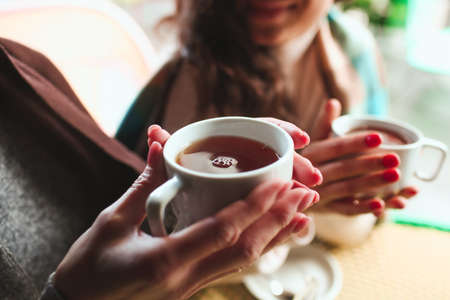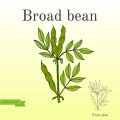The Heritage of British Herbal Teas
Herbal teas have woven themselves into the fabric of British culture, offering comfort, healing, and connection to the land for centuries. The tradition of blending native plants for wellbeing can be traced back to ancient times, where local communities relied on nature’s pharmacy for everyday health. In the heart of British folk medicine, herbs such as nettle, elderflower, chamomile, and mint were cherished not only for their gentle flavours but also for their therapeutic properties. These humble plants grew abundantly in hedgerows, meadows, and cottage gardens—each with its own story and purpose in supporting vitality. As herbal wisdom passed down through generations, it became clear that the British landscape itself is a living apothecary. Today, rediscovering these time-honoured blends allows us to connect with both our heritage and the rhythms of nature. Embracing traditional British herbal teas is more than a nod to nostalgia; it is an invitation to balance body and mind by aligning with the healing power of local flora.
Essential British Herbs: Properties and Benefits
British herbal traditions are deeply intertwined with the landscape, offering a range of time-honoured plants that serve as both remedies and daily tonics. By understanding the properties and benefits of classic British herbs such as nettle, elderflower, chamomile, and mint, we can better appreciate how these plants support holistic well-being in line with mind-body harmony—a concept cherished in both traditional Chinese medicine and British folk practice.
Nettle (Urtica dioica)
Nettle is renowned for its nourishing qualities. Rich in vitamins and minerals, particularly iron and calcium, nettle supports vitality and gently cleanses the body. Traditionally, it has been used to boost energy levels, ease seasonal allergies, and support joint comfort. In the context of mind-body balance, nettle is viewed as a restorative tonic that helps ground the spirit while revitalising physical strength.
Elderflower (Sambucus nigra)
Elderflower holds a special place in British herbalism for its cooling and soothing properties. It is commonly brewed into teas to alleviate cold symptoms, support respiratory health, and promote gentle detoxification. Elderflower’s light floral aroma uplifts the mood, making it an excellent ally for emotional clarity during times of tension or transition.
Chamomile (Matricaria chamomilla)
Chamomile is perhaps one of the most beloved British herbs for relaxation. Its calming nature soothes digestive discomfort, encourages restful sleep, and eases nervous tension. This gentle herb acts as a bridge between mind and body—helping to settle busy thoughts while nurturing the digestive system according to both Western and Eastern wellness philosophies.
Mint (Mentha spp.)
Mint varieties thrive in British gardens, celebrated for their refreshing flavour and cooling effect. Mint tea aids digestion, relieves headaches, and clears mental fog. Its invigorating scent is also known to lift the spirits and sharpen concentration—a perfect companion for moments when you need both clarity of mind and bodily comfort.
Summary Table: Classic British Herbal Teas
| Herb | Main Properties | Key Benefits |
|---|---|---|
| Nettle | Nourishing, cleansing | Supports vitality, eases allergies, strengthens joints |
| Elderflower | Cooling, soothing | Promotes respiratory health, detoxifies, uplifts mood |
| Chamomile | Calming, digestive aid | Relieves stress, soothes stomach, improves sleep |
| Mint | Refreshing, invigorating | Aids digestion, eases headaches, boosts focus |
Nourishing Mind-Body Balance with British Herbs
The unique strengths of these classic herbs lie not only in their individual properties but also in their ability to promote harmony between body and mind. Integrating them into your daily routine can help maintain equilibrium—fortifying physical resilience while nurturing emotional well-being in true British tradition.

3. Blending Techniques: Creating Your Own Herbal Tea
Selecting Complementary Herbs
The art of blending traditional British herbal teas begins with choosing herbs that work in harmony, both in their therapeutic properties and flavours. Drawing upon time-honoured wisdom, start by identifying the primary intention for your blend—whether it’s to soothe digestion, calm nerves, or support immunity. For example, pairing chamomile with lemon balm provides a gentle, calming effect ideal for unwinding after a long day. Meanwhile, nettle and elderflower make a classic duo for seasonal support. Always ensure your chosen herbs are safe and suitable for your personal needs.
Balancing Flavours for Palate and Well-being
British herbal traditions cherish not only the health benefits of teas but also their comforting taste profiles. To achieve a balanced blend, combine base herbs (like nettle or blackberry leaf) with accent herbs (such as mint or rose petals) and add a touch of flavour enhancers if desired. A well-rounded cup often includes earthy, floral, and slightly sweet notes—think of how lavender softens the robust taste of rosemary, or how fennel adds sweetness to dandelion root. Taste as you go and adjust ratios to create harmony; this mindful approach reflects both culinary artistry and holistic healing principles.
Blending for Specific Health Intentions
When crafting blends for everyday ailments, let traditional British folk remedies inspire you. For digestive ease, try a combination of peppermint, chamomile, and meadowsweet. For respiratory comfort during colder months, thyme, elderflower, and yarrow are well-respected companions. Tailor each blend to your constitution—considering warmth or cooling effects according to both Western and Chinese herbal perspectives—to nurture balance within the body.
Time-honoured Tips from Traditional Wisdom
Keep your herbs fresh by storing them in airtight containers away from light and moisture. Blend small batches to preserve potency and experiment with proportions until you find what resonates with your body’s needs. Remember, preparation is an act of self-care: infuse intention into each step, from selecting botanicals to pouring boiling water over your blend. In this way, British herbal tea-making becomes more than a remedy—it is a practice in daily balance and mindful living.
4. Perfect Brewing: Ritual and Method
In the world of traditional British herbal teas, the way we brew is as vital as the blend itself. Rooted in centuries-old customs, the brewing ritual offers a moment of mindfulness that nurtures both body and spirit—a philosophy deeply resonant with the holistic principles of Chinese medicine. Engaging with this process not only extracts the full benefits from each herb but also cultivates a gentle harmony within.
Step-by-Step Guide to Mindful Herbal Tea Brewing
| Step | Action | Purpose & Tips |
|---|---|---|
| 1. Choose Your Blend | Select herbs suited to your needs—chamomile for calm, peppermint for digestion, nettle for vitality. | Embrace seasonal and personal needs, reflecting on what your body craves. |
| 2. Measure Thoughtfully | Use 1-2 teaspoons of dried herbs (or a small handful fresh) per cup. | Balance is key; too much can overwhelm, too little may lack potency. |
| 3. Boil Water | Bring fresh, filtered water just to a boil. | For delicate flowers, let water cool slightly before pouring to preserve subtle flavours. |
| 4. Steep Mindfully | Pour hot water over herbs in a teapot or infuser; cover and steep 5-10 minutes. | Sit quietly during this time, breathing deeply—let the aroma envelop you. |
| 5. Strain and Serve | Strain into your favourite mug or cup. | Avoid metal strainers for delicate blends; choose ceramic or glass for purity. |
| 6. Savour Slowly | Sip slowly and attentively, noticing warmth and flavour unfolding with each mouthful. | This is your moment for mindful self-care—honour it fully. |
The Importance of Ritual in Everyday Wellness
The British tea ritual is more than tradition—it’s an act of self-respect and grounding. As in classical Chinese herbal practice, the intention behind preparation shapes the remedy’s efficacy. When we brew with care—selecting our blend, measuring mindfully, and observing each step—we invite balance into our lives. Whether enjoyed at dawn’s quiet hush or dusk’s golden hour, making tea becomes a daily ceremony that restores equilibrium between mind and body.
Teas for Everyday Ailments
Soothing Sleep Troubles
In the heart of British herbal traditions, blending teas to support restful sleep is both an art and a gentle remedy. For those who struggle with drifting off, consider a calming mix of chamomile, lavender, and limeflower. Chamomile is renowned for its tranquilising effects, while lavender offers a soothing aroma that helps quiet a restless mind. Limeflower—long used in English folk medicine—adds a subtle sweetness and further relaxation. Simply steep one teaspoon of each dried herb in freshly boiled water for 5–7 minutes. Drink in the evening as part of your wind-down ritual; this blend encourages a peaceful transition from day to night, honouring both mind and body’s need for harmony.
Digestive Comfort with Classic Blends
Digestive upset can easily disturb daily life, but traditional British herbal teas offer gentle relief. Peppermint tea stands out for its cooling, antispasmodic properties and is commonly used after meals to soothe bloating or discomfort. Pair peppermint with fennel seeds—a centuries-old remedy for flatulence and indigestion—and add a touch of dried lemon balm for its calming effect on the stomach and spirit alike. Steep one teaspoon of each herb in hot water for 5 minutes. This blend not only eases digestive woes but also nurtures a sense of balance within, reflecting the holistic wisdom cherished in Chinese medicine: treat the root as well as the branch.
Stress Relief & Emotional Balance
Modern life often brings stress and tension, yet nature provides us with time-honoured allies. For emotional equilibrium, try a blend of oatstraw, rose petals, and passionflower—herbs beloved in both British and Chinese traditions for their gentle nourishing qualities. Oatstraw supports nervous system resilience; rose petals uplift the heart and settle frazzled emotions; passionflower gently calms without causing drowsiness during the day. Use one teaspoon of each herb per cup, steeping for at least 7 minutes to draw out their soothing benefits. This restorative infusion invites you to pause, breathe deeply, and cultivate inner peace amidst life’s busyness.
Tips for Holistic Self-Care
As you explore these blends, remember that regular self-care is key to lasting wellbeing. Enjoying herbal teas is more than addressing symptoms—it’s an opportunity to slow down, reconnect with yourself, and embrace nature’s gentle healing powers. Whether sipped alone or shared among friends, these traditional remedies foster balance between body, mind, and spirit—the essence of both British herbalism and Chinese health philosophy.
6. Safety, Sourcing, and Sustainability
When embracing traditional British herbal teas as daily remedies, it is vital to consider safety, ethical sourcing, and sustainability. Respecting these principles not only preserves your well-being but also supports the harmony between people and nature—a value deeply embedded in both British folk practice and holistic traditions.
Safe Use of Herbal Teas
Not all herbs are suitable for everyone, and some can interact with medications or existing health conditions. Always identify herbs with absolute certainty—mistakes can lead to adverse effects. For those new to blending or brewing, consult a qualified herbalist or healthcare professional before regular use, especially if pregnant, breastfeeding, taking medication, or managing chronic illness. Start with small quantities and observe any bodily response before incorporating a new tea into your routine.
Ethical Foraging and Local Sourcing in the UK
The British countryside offers a wealth of wild herbs, but responsible foraging is key. Follow the Countryside Code: take only what you need, never uproot plants unless you have landowner permission, and avoid harvesting from polluted areas such as roadsides or fields treated with pesticides. Recognise protected species—never pick rare or endangered plants. When buying herbs, choose reputable UK suppliers who prioritise organic or sustainably grown produce.
Sourcing Tips for Home Herbalists
- Harvest herbs at their peak: usually late morning after dew has dried but before the midday sun.
- Leave plenty behind: aim to take no more than one third from any patch to ensure regrowth and wildlife food sources.
- Support local growers: visit farmers’ markets or independent health shops for native British herbs like nettle, elderflower, and chamomile.
The Importance of Sustainability in Herbal Practice
A sustainable approach honours the cycles of nature and ensures future generations can enjoy the same benefits. Compost spent herbs to return nutrients to the earth. Choose reusable muslin bags or teapots over disposable tea bags to reduce waste. Embrace seasonal changes by adapting blends to what is naturally abundant each month—this not only supports ecological balance but enhances your connection with the land and your own internal rhythms.
Conclusion
By blending safe practice with mindful sourcing and sustainable habits, you carry forward Britain’s rich herbal legacy while nurturing both body and environment—a true embodiment of harmonious living in accordance with nature’s wisdom.


